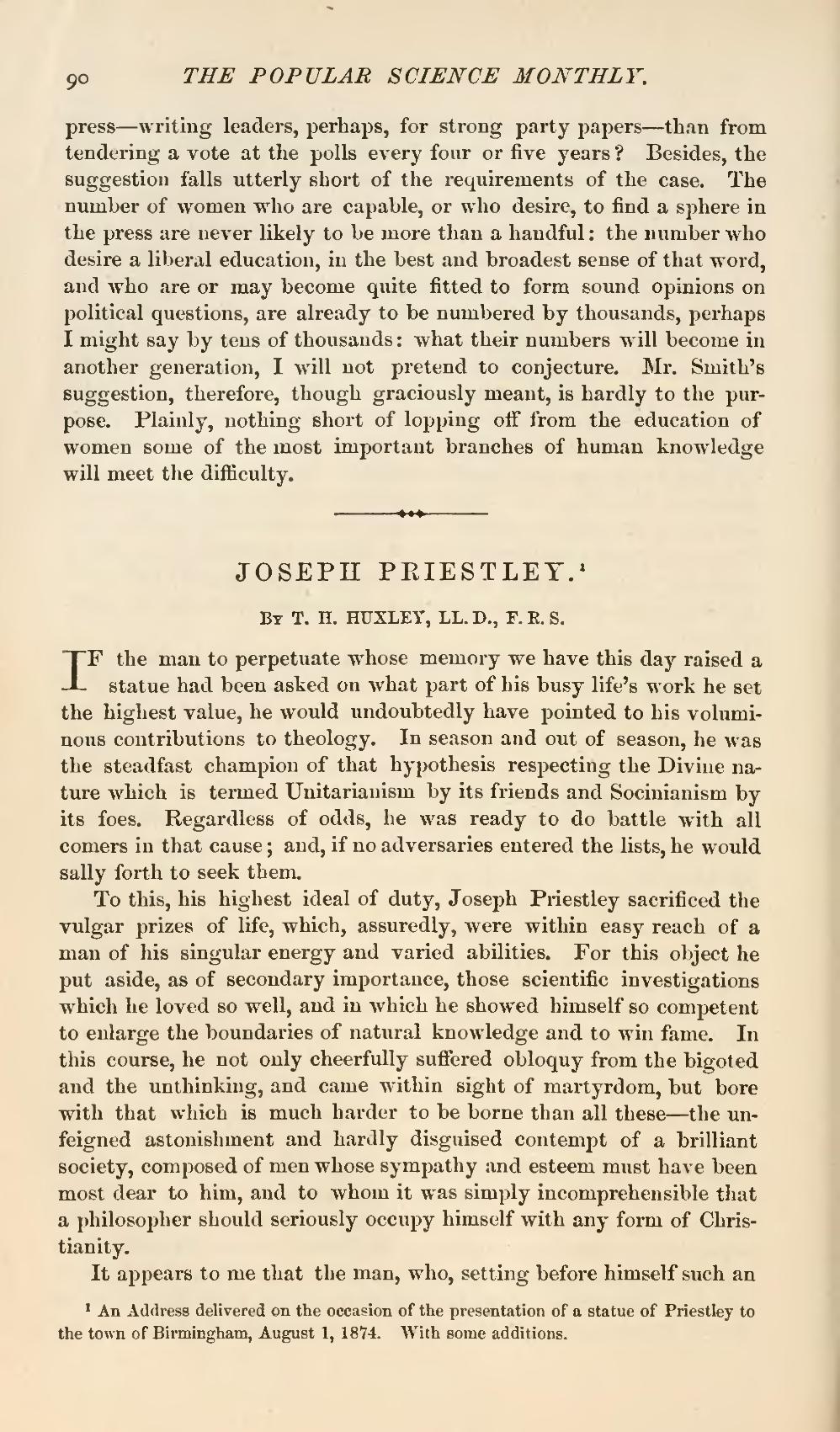press—writing leaders, perhaps, for strong party papers—than from tendering a vote at the polls every four or five years? Besides, the suggestion falls utterly short of the requirements of the case. The number of women who are capable, or who desire, to find a sphere in the press are never likely to be more than a handful: the number who desire a liberal education, in the best and broadest sense of that word, and who are or may become quite fitted to form sound opinions on political questions, are already to be numbered by thousands, perhaps I might say by tens of thousands: what their numbers will become in another generation, I will not pretend to conjecture. Mr. Smith's suggestion, therefore, though graciously meant, is hardly to the purpose. Plainly, nothing short of lopping off from the education of women some of the most important branches of human knowledge will meet the difficulty.
| JOSEPH PRIESTLEY.[1] |
By T. H. HUXLEY, LL. D., F. R. S.
IF the man to perpetuate whose memory we have this day raised a statue had been asked on what part of his busy life's work he set the highest value, he would undoubtedly have pointed to his voluminous contributions to theology. In season and out of season, he was the steadfast champion of that hypothesis respecting the Divine nature which is termed Unitarianism by its friends and Socinianism by its foes. Regardless of odds, he was ready to do battle with all comers in that cause; and, if no adversaries entered the lists, he would sally forth to seek them.
To this, his highest ideal of duty, Joseph Priestley sacrificed the vulgar prizes of life, which, assuredly, were within easy reach of a man of his singular energy and varied abilities. For this object he put aside, as of secondary importance, those scientific investigations which he loved so well, and in which he showed himself so competent to enlarge the boundaries of natural knowledge and to win fame. In this course, he not only cheerfully suffered obloquy from the bigoted and the unthinking, and came within sight of martyrdom, but bore with that which is much harder to be borne than all these—the unfeigned astonishment and hardly disguised contempt of a brilliant society, composed of men whose sympathy and esteem must have been most dear to him, and to whom it was simply incomprehensible that a philosopher should seriously occupy himself with any form of Christianity.
It appears to me that the man, who, setting before himself such an
- ↑ An Address delivered on the occasion of the presentation of a statue of Priestley to the town of Birmingham, August 1, 1874. With some additions.
